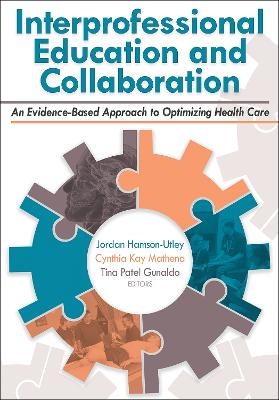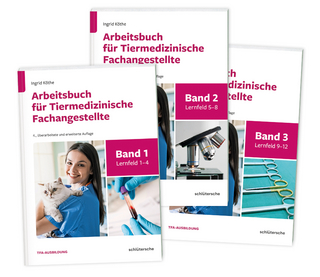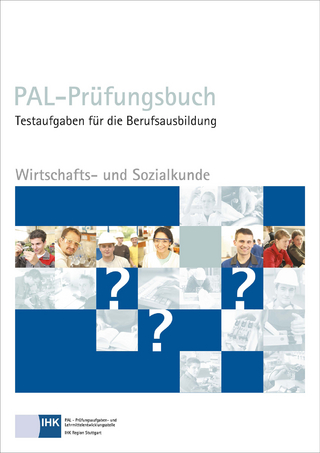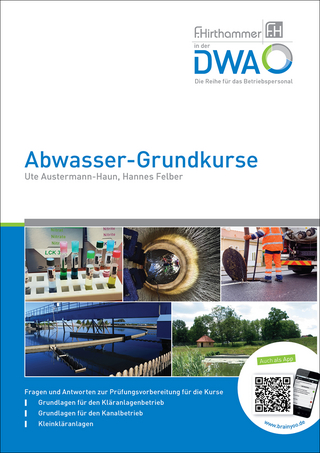
Interprofessional Education and Collaboration
Human Kinetics (Verlag)
978-1-4925-9003-3 (ISBN)
- Titel z.Zt. nicht lieferbar
- Versandkostenfrei innerhalb Deutschlands
- Auch auf Rechnung
- Verfügbarkeit in der Filiale vor Ort prüfen
- Artikel merken
Interprofessional Education and Collaboration: An Evidence-Based Approach to Optimizing Health Care is a groundbreaking text in the field of interprofessional education (IPE) and interprofessional collaborative practice (IPCP).
As the health care industry continues to grow, it is critical that those entering health care careers possess interprofessional competency and a collaborative skill set. As such, the World Health Organization and academic program accreditors have amplified their calls for interprofessional training. This text guides the reader through the core competencies for interprofessional collaborative practice that have been set by the Interprofessional Education Collaborative (IPEC) and takes an inclusive approach to the education standards set by professional programs that are members of the Health Professions Accreditors Collaborative (HPAC), including the Commission on Accreditation of the Athletic Training Education (CAATE).
Authored by a team of experts representing seven health care professions, this text uses simple definitions and uniform terminology to supply a foundational basis for IPE and IPCP. Introductory topics include building professional knowledge of self and others, creating a culture for teams, building interprofessional relationships, and fostering collaboration. Later chapters move beyond the basics to provide guidance in leading interprofessional teams, managing conflict, and sustaining the interprofessional effort.
Interprofessional Education and Collaboration offers a unique pedagogical structure that links IPE concepts with IPCP strategies by connecting research with evidence-based practices. Case studies create opportunities to assimilate and discuss IPE concepts. To optimize student engagement and comprehension, each chapter contains the following valuable learning aids:
Each chapter begins with a Case Study that presents a realistic IPCP scenario. At the close of each chapter, the case study is revisited to apply the chapter themes to the case study, and three to five discussion questions are supplied.
Collaborative Corner sidebars aid comprehension with reflective questions or statements related to chapter topics. This feature will facilitate collaborative learning as students share their interprofessional perspectives.
Tools of IPE sidebars equip readers with resources such as surveys, inventories, and activities to implement in their daily practice.
EBP of Teamship sidebars showcase contemporary research articles and findings. This feature reinforces the connection between IPE and IPCP by summarizing relevant research and supplying corresponding evidence-based IPCP strategies.
As leading health care institutions continue to prioritize IPE and IPCP, educators have a responsibility to shape the future of health care through an interprofessional curriculum. Interprofessional Education and Collaboration is focused on developing a dual identity that leads to intentional behaviors designed to improve patient outcomes through IPCP. Readers will conclude this text with a firm understanding of IPE concepts and IPCP implementation strategies that aim to create change in daily practice and improve the impact of health care.
Jordan Hamson-Utley, PhD, LAT, ATC, is the director of the postprofessional master of health science program and an associate professor at the University of St. Augustine for Health Sciences, where she presides as chairperson of the interprofessional education task force. Utley has practiced as a certified athletic trainer for 25 years across various settings and has 20 years of experience in health sciences education and academic leadership. She serves as a committee member of the National Athletic Trainers’ Association Post-Professional Education Committee (PPEC) and on the program planning committee for the American Interprofessional Health Collaborative (AIHC). Utley was awarded Apple’s Distinguished Educator award in 2012 for innovative use of technology in health care education. She received the Excellence in Publishing Award from the University of Phoenix in 2014. In 2016, Utley was recognized for her collaboration and leadership at the University of St. Augustine when she accepted the Stanley Paris Award, the highest honor awarded by the board to university faculty members. In 2019, the National Athletic Trainers’ Association awarded her the International Speaker Grant to present on the impact of interprofessional education in health care. Utley is a coauthor of the book Psychosocial Strategies for Athletic Training and continues to promote the evolving role of the athletic trainer on the health care team. Cynthia Kay Mathena, PhD, OTR/L, is the dean of the College of Health Sciences at the University of St. Augustine for Health Sciences. Her responsibilities include oversight of programs with a focus on interprofessional education and innovative online delivery. Mathena has over 30 years of experience as an occupational therapist and 25 years of higher education experience. She is active in state, local, and national professional organizations and serves on accreditation site visit teams as a chair. She has recently published on topics that include service learning and online education and has presented nationally on simulation and on approaches to interprofessional education. In her free time, she enjoys outdoor activities, fitness, and nutrition. Tina Patel Gunaldo, PhD, DPT, MHS, is the director for the Center for Interprofessional Education and Collaborative Practice at Louisiana State University Health–New Orleans. In addition to presentations and publications, Dr. Gunaldo’s professional contributions include serving on the American Interprofessional Health Collaborative’s Scholarship Committee; on the Louisiana Immunization Workgroup, supporting a collaborative approach to increasing immunization rates; and on the American Physical Therapy Association’s Finance Committee. She contributes to the development of the Scholars Program for the Louisiana Area Health Education Center (AHEC). She is also the coeditor of the Health, Interprofessional Practice and Education journal.
Chapter 1. Interprofessional Health Care
Cindy Mathena, PhD, OTR/L
Communication and Teamwork
Uniform Terminology
Importance of Collaboration
Enablers and Barriers of IPCP and IPE
History of IPCP
History of IPE
Key Organizations and Resources
Summary
Chapter 2. Models of Delivery
Joy Doll, OTD, OTR/L; Anthony Breitbach, PhD, ATC, FASAHP; and Kathrin Eliot, PhD, RD, FAND
Theoretical Approaches
Foundation of IPE Teaching and Learning
Learning Strategies
Modes of Instruction
Models of Delivery
Clinically Integrated IPE
Summary
Chapter 3. Interprofessional Development for Clinicians, Preceptors, and Faculty
Jordan Hamson-Utley, PhD, LAT, ATC
Faculty KSAs and Behavioral Change
Development Models and Interprofessional Competencies
Organizational Models and Initiatives
Assessing Continuing Professional Education
Professional Development of the Clinical Preceptor
Summary
Chapter 4. Essential Evidence
Judi Schack-Dugré, PT, DPT, MBA, EdD; and Jordan Hamson-Utley, PhD, LAT, ATC
Influence of Faculty
Shaping IPE
Taking Aim
Learner’s Reaction (Level 1) Evidence
Change in Attitudes, Perceptions, Knowledge, and Skills (Level 2) Evidence
Behavioral Change (Level 3) Evidence
Organizational Change and Benefits to Patients (Level 4) Evidence
Influence of Online Delivery Models on Attitudes and IPCP
Effectiveness of Simulation
Assessment Tools
Summary
Chapter 5. Building or Rebuilding Interprofessional Relationships
K. Michelle Knewstep-Watkins, OTD, OTR/L; C. Michelle Longley, MSN, RN, NP-C; and Meghan Scanlon, BSIE
Evidence and Current Practice
Interprofessional Team Composition
Collaboration Tools and Team Activities
Summary
Chapter 6. Teaming to Achieve Patient and Organizational Outcomes
Robin Dennison, DNP, APRN, CCNS, NEA-BC; Amy Herrington, DNP, RN, CEN, CNE; and Melanie Logue, PhD, DNP, APRN, CFNP, FAANP
Health Care Teaming
Teams
Team Collaboration
Teaming and Outcomes
Organizational Systems and Team Practice
Strategies to Facilitate Teaming
Summary
Chapter 7. Interprofessional Communication Strategies
Dee M. Lance, PhD, CCC-SLP/L; and Kim C. McCullough, PhD, CCC-SLP/L
Overview of Team Communication
General Communication Strategies
Specific Communication Strategies
Summary
Chapter 8. Building Sustainability
Tina Patel Gunaldo, PhD, DPT, MHS; and Pamela Waynick-Rogers, DNP, APRN-BC
Sustainability Factors
Adaptability (Environment)
Acceptability (Social)
Affordability (Economic)
Emerging Research and Opportunities for Interprofessional Growth
Summary
Appendix: Additional Resources
| Erscheinungsdatum | 31.12.2019 |
|---|---|
| Verlagsort | Champaign, IL |
| Sprache | englisch |
| Maße | 178 x 254 mm |
| Gewicht | 612 g |
| Themenwelt | Medizin / Pharmazie ► Gesundheitswesen |
| Sozialwissenschaften ► Pädagogik ► Berufspädagogik | |
| ISBN-10 | 1-4925-9003-7 / 1492590037 |
| ISBN-13 | 978-1-4925-9003-3 / 9781492590033 |
| Zustand | Neuware |
| Haben Sie eine Frage zum Produkt? |
aus dem Bereich


